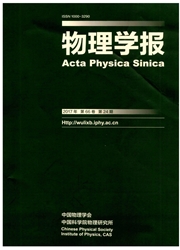

 中文摘要:
中文摘要:
针对二维泊松方程在实际应用过程中几种常用方法存在计算量大、易发散、局部收敛等不足,提出了一种改进算法.该算法基于并行超松弛迭代法,采用遗传算法对松弛因子进行全局寻优,解决了超松弛迭代法求解泊松方程时最佳松弛因子难以确定的问题.构建了多目标适应度函数,优化了遗传算子参数,分析了算法的计算量、计算时间与误差精度,与传统方法进行了对比研究.结果表明:松弛因子对泊松方程求解的速度与精度影响显著:改进算法能减少迭代次数,节省计算时问,加快方程的求解:算法适合于求解计算量较大、精度要求较高的时域有限差分方程,而且精度要求越高,算法的性能越好,节省的时间也越多.
 英文摘要:
英文摘要:
There exist some disadvantages in the calculation of two-dimensional Poisson equation with several common methods. A new ameliorative algorithm is presented. It is based on a parallel successive over-relaxation (PSOR) method, by using the multi-objective genetic algorithm to search for optimal relaxation factor, with which the problem of optimal relaxation factor selection in PSOR is solved. The multi-objective fitness function is constructed, with which the genetic algorithm parameters are optimized. The analysis mainly focuses on algorithm computation, time cost and accuracy of error correction. The performance of the ameliorative algorithm is compared with those of Jacobi, Gauss-Seidel, Successive over relaxation iteration (SOR) and PSOR. Experimental results show that relaxation factor has a significant effect on the speed of solving Poisson equation, as well as the accuracy. The improved algorithm can increase the speed of iteration and obtain higher accuracy than traditional algorithm. It is suited for solving complicated finite difference time domain equations which need high accuracy. The higher the accuracy requirement, the better the performance of the algorithm is and the more computation time can also be saved.
 同期刊论文项目
同期刊论文项目
 同项目期刊论文
同项目期刊论文
 Algorithm to eliminate permutation of frequency domain blind source separation based on influence fa
Algorithm to eliminate permutation of frequency domain blind source separation based on influence fa Theory and measurement for mutual coupling effect of ultra high frequency radio-frequency identifica
Theory and measurement for mutual coupling effect of ultra high frequency radio-frequency identifica Analysis and measurments of path loss effects for ultra high frequency radio-frequency identificatio
Analysis and measurments of path loss effects for ultra high frequency radio-frequency identificatio Design and implementation of grid multi-scroll chaotic circuit based on current feedback operational
Design and implementation of grid multi-scroll chaotic circuit based on current feedback operational Design of test stimuli and minimisation of ambiguity in fault diagnosis of analogue circuits with to
Design of test stimuli and minimisation of ambiguity in fault diagnosis of analogue circuits with to Nonlinear correction of photoelectric displacement sensor based on least square support vector machi
Nonlinear correction of photoelectric displacement sensor based on least square support vector machi A Novel Localization Algorithm Based on Isomap and Partial Least Squares for Wireless Sensor Network
A Novel Localization Algorithm Based on Isomap and Partial Least Squares for Wireless Sensor Network Analysis of Electromagnetic Force Distribution on End winding of Electrical Submersible Motor During
Analysis of Electromagnetic Force Distribution on End winding of Electrical Submersible Motor During EFFECT OF GRAIN BOUNDARY ON THE CHARACTERISTICS OF POLY-SI METAL-INSULATOR-SEMICONDUCTOR PHOTODETECT
EFFECT OF GRAIN BOUNDARY ON THE CHARACTERISTICS OF POLY-SI METAL-INSULATOR-SEMICONDUCTOR PHOTODETECT Wideband Tuning of Impedance Matching Networks using Hierarchical Genetic Algorithms for Multistanda
Wideband Tuning of Impedance Matching Networks using Hierarchical Genetic Algorithms for Multistanda Automatic impedance matching and antenna tuning using quantum genetic algorithms for wireless and mo
Automatic impedance matching and antenna tuning using quantum genetic algorithms for wireless and mo Minimum Component High Frequency Gm-C Wavelet Filters based on Maclaurin Series and Multiple Loop Fe
Minimum Component High Frequency Gm-C Wavelet Filters based on Maclaurin Series and Multiple Loop Fe 期刊信息
期刊信息
